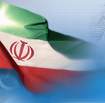The Politics of Polarization: Iran’s Elections: Why Arab Leaders Want Ahmadinejad To Win

Iran’s presidential elections are scheduled for June 12. Although yet to formally declare his candidacy, incumbent president Mahmoud Ahmadinejad is fully expected to seek re-election. While the “Principalist” coalition thus seems settled on fielding a single candidate, the contest to head the “Reformist” list has proven much more dynamic.
Long assumed to be Ahmadinejad’s primary rival, former president Mohammad Khatami abruptly announced his withdrawal from the race so as not to split the vote between himself and the other reformist candidates – influential and popular former prime minister Mir-Hossein Mousavi, and former parliament speaker Mehdi Karroubi. Additionally, Khatami felt conservatives would be more likely to vote for Mousavi than himself.
“Rest assured that Mousavi will recruit a remarkable percentage of votes from the other side. I have reports that some conservatives will not vote for me and this guy [Ahmadinejad], but they would definitely vote for Mousavi,” he said.
By all measures, it was a selfless act to limit the chances that Ahmadinejad would be re-elected. Karroubi, under increasing pressure to likewise withdraw and unite reformists behind Mousavi, has declared he will remain in the race to the end.
Although it is true the final say in all of Iran’s political affairs rests with Ayatollah Khamenei, this does not make the position of president inconsequential, as the spirited campaign and endorsement or repudiation of candidates by influential persons bear witness. The choice of president is a reflection of the Iranian people’s will which, in turn, influences how Khamenei decides on important matters of state.
Indeed, the issues in the upcoming election are far-reaching and indicative of the great challenges Iran will face in the coming years. They include the effect of falling oil prices and double-digit unemployment and inflation; the need for civic reform; the role to be played in Middle East affairs, especially as it relates to Palestine and support for groups such as Hamas and Hezbollah; the ramifications of a possible rapprochement with the United States and obviously, the question of nuclear development.
The election will be closely watched in the Arab world, especially in countries exhibiting the most animus toward Iran, namely Egypt and Saudi Arabia (the latter broadly representative of the Arab Gulf nations with the exception of Qatar). One would surmise that they are hoping for a reprieve from Ahmadinejad’s bellicosity, as are many Iranians. That is, for a less controversial and more pragmatic, diplomatic and soft-spoken leader like Khatami (were he still in the race), Mousavi or Karroubi instead.
That however, is certainly not the case. What these nations’ rulers fear most is the election of a leader with exactly these qualities, regardless of who it may be.
In recent years, Egypt, Jordan, Saudi Arabia, Bahrain and now Morocco have found comfort in laying blame for their domestic and regional woes on Iran and their (perceived) allies. The fiery rhetoric of Ahmadinejad, whether pertinent or not, has undoubtedly helped bolster their case.
This has taken shape in many forms, including accusing Iran of “cultural infiltration” as Morocco has recently done, importing the “Shiite ideology” to Egypt, and “interfering” in the internal affairs of Bahrain and Saudi Arabia. The latter is meant to redirect attention from a purely domestic issue – the fallout from longstanding discrimination against Bahraini and Saudi Shia Muslim citizens – abroad. Meanwhile, Egyptian president Hosni Mubarak seeks to ever legitimize his own rule by continuing to foment sectarianism.
These leaders also fear an Iranian president more amenable to overtures from the United States. A thawing of relations between the U.S. and Iran will render needless the monetary, military and diplomatic benefits that being guardians against “Iranian expansionism” bring.
The standing of many Arab rulers is now more than ever based on the politics of polarization. And there is little doubt that exploiting this polarization – upon which they are so dependent – will be facilitated if Ahmadinejad remains as Iran’s president. For this reason, they hope he emerges victorious in June.
Rannie Amiri is an independent Middle East commentator. He may be reached at: [email protected].

